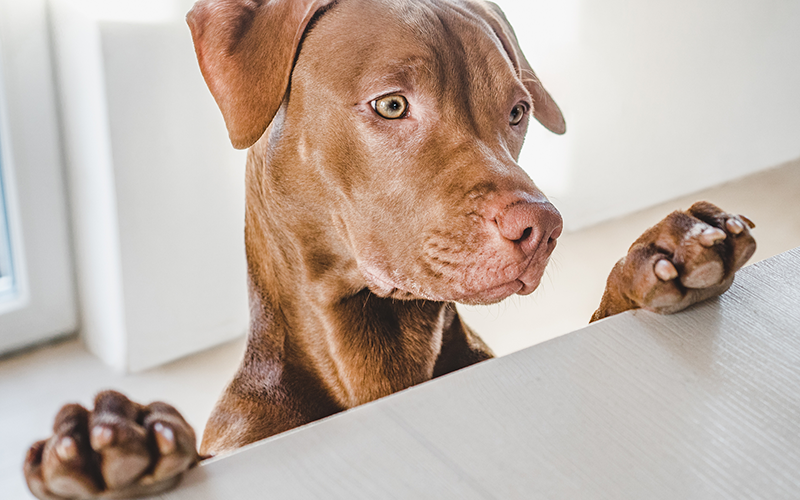The numbers of door-to-door trick-or-treaters may go down this year due to COVID-19, but sales of Halloween treats have gone up. According to the National Confectioners Association, total Halloween candy sales in September 2020 were up by 13% over the same period in 2019, and Halloween chocolate sales were up 25.3%.
What this means for client education: With all the extra Halloween treats sitting around in boxes, bags, and bowls for inquisitive pets to discover, this year is more important than ever for veterinary practices to educate pet owners about foods that can be toxic and potentially lethal for pets.
To help you easily educate your clients, protect more pets, and reduce the potential volume of after-hours calls to on-call vets and 24/7 emergency hospitals, please feel free to share the information in this blog about five common Halloween foods and treats that pets should not consume.
Please note: ClientEd subscribers can also educate pet owners about holiday food safety and pets with several related handouts, including Halloween Safety for Pets, Holiday Safety Tips for Cat Owners, and Holiday Safety Tips for Dog Owners.
If you’re not a ClientEd subscriber, click here to find out what ClientEd is and how it both strengthens your veterinary team’s role as animal health educators and encourages client compliance.
5 Common Halloween Foods and Treats That Pets Should Not Consume
1. Chocolate
All forms of chocolate are toxic to dogs and cats because of theobromine, a compound similar to caffeine. At doses over 40 mg/kg, cardiac symptoms can be seen, including racing heart rate, high blood pressure, or irregular heartbeat, and doses around 200 mg/kg can be fatal. The darker and more bitter the chocolate, the more dangerous it is.
2. Foods and Treats Sweetened with Xylitol
As a sugar substitute widely found in candies, gum, diet baked goods, and other foods, xylitol is safe for human consumption. Yet for dogs, xylitol can be lethal. Xylitol is rapidly absorbed into a pet’s bloodstream and can cause hypoglycemia (low blood sugar), liver failure, seizures, and even death in dogs.
3. Raisins
kidney failure in dogs. Since researchers have yet to pinpoint the exact agent that makes these fruits so toxic, any ingestion should be cause for concern, regardless of the grape variety.
4. Macadamia Nuts
Common in prepared cookies and Halloween treat recipes, macadamia nuts are considered poisonous for dogs. Though researchers are still trying to identify the specific toxin that affects dogs, both raw and roasted macadamia nuts can cause vomiting, tremors, and hind limb weakness.
5. Unbaked Bread Dough
While people don’t give out unbaked bread dough to trick-or-treaters (unless they wish to have their homes pelted with said dough), people do enjoy baking for friends and family at Halloween. When ingested by dogs, unbaked bread dough results in the production of ethanol from the fermentation of sugars by certain species of yeast, and can cause vomiting, incontinence, respiratory distress, seizures, and heart attack.
The old saying “An ounce of prevention is worth a pound of cure” remains true today when it comes to protecting pets from toxic foods at Halloween—and all the days of the year.






